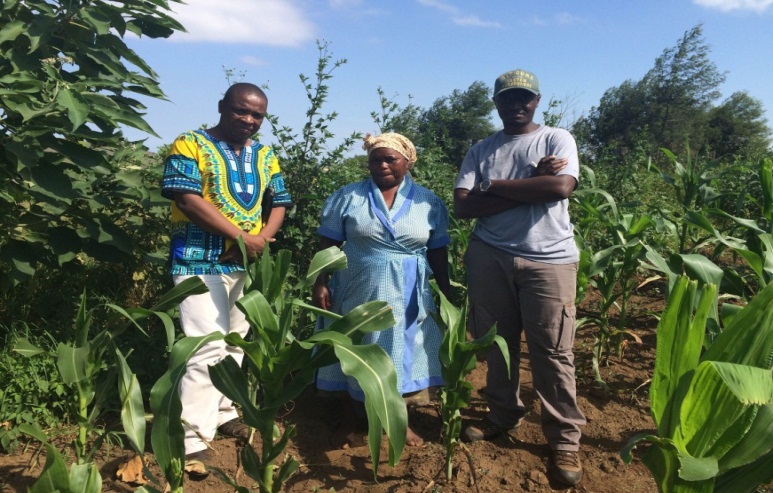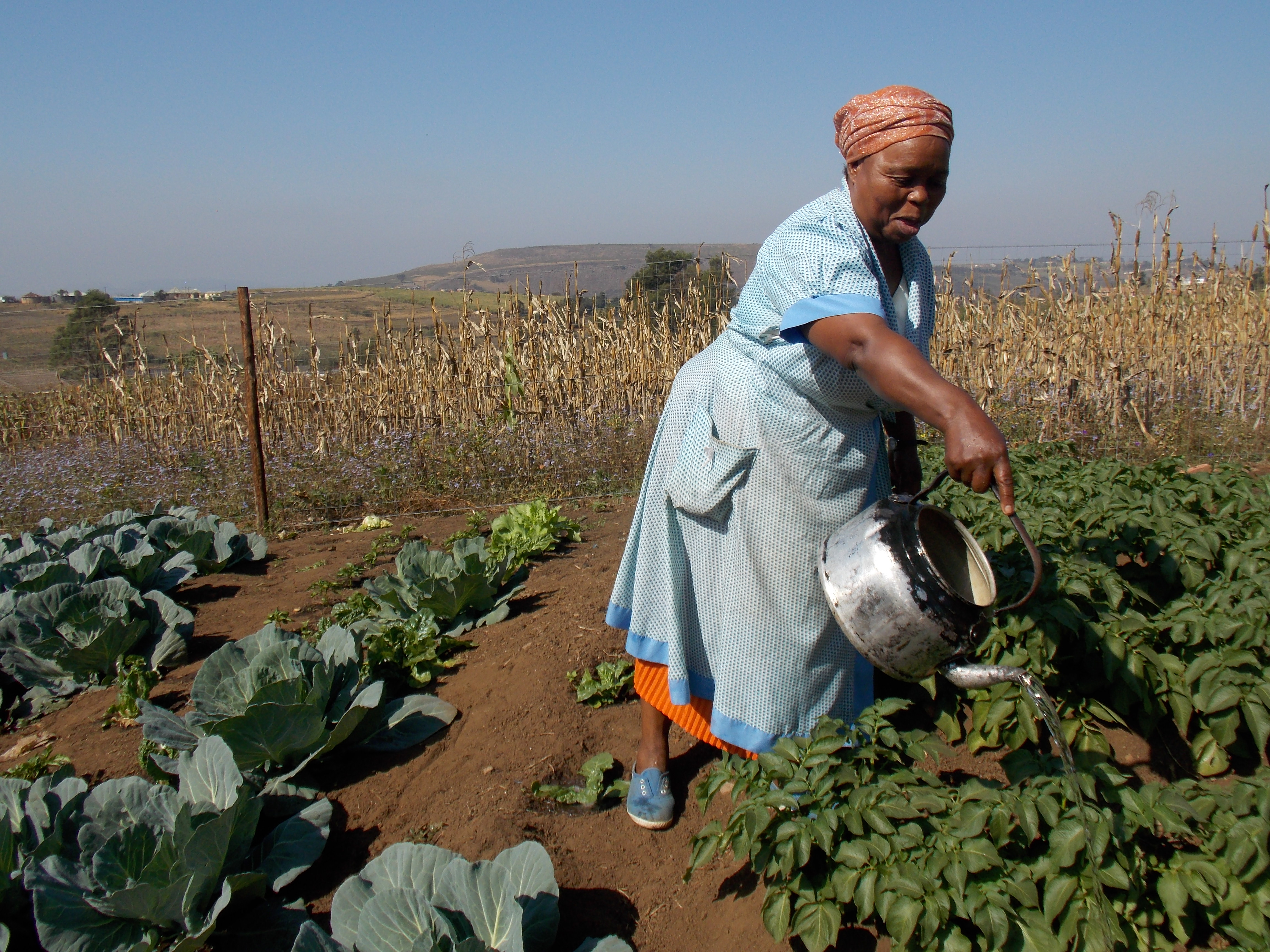Beneficiary Stories
South Africa: Increasing Climate Resilience in Small-Scale Farmers through Integrated Adaptation
Through an integrated adaptation approach, a project in South Africa funded by the Adaptation Fund and implemented by the South African National Biodiversity Institute (SANBI) is reducing climate vulnerability and increasing the resilience and adaptive capacity among small-scale farmers that are threatened by climate variability and change.
Among the project beneficiaries is Mrs. Lungeleni Sibiya, a small-scale farmer from Swayimane who cultivates root vegetables such as beans, mealies, potatoes and amadumbe (taro). Recent changes in rainfall intensities have affected her yield and production of beans and amadumbe. Through the introduction of new small-scale farming techniques by the uMngeni Resilience Project, she has increased her maize and sweet potato production. This has helped feed her family by making more income through the selling of excess produce.
Meanwhile, Mr. Winnett Sibongile Dlhadla had been planting mealies (maize) and potatoes in Swayimane using inappropriate planting methods such as densely sowing his maize seedlings after preparing the soil. But after working closely with the uMngeni Resilience Project’s agricultural extension officers, he learned about new more sustainable small-scale farming techniques. This has substantially increased the maize produce that feeds his family while adding income through selling the excess produce.

Mrs. Lungeleni Sibiya (centre) from Swayimani is a small scale beans, mealies, potatoes and amadumbe (taro) which are local root vegetables farmer. Due to recent changes in rainfall intensities, her yield and production of beans and amadumbe have been affected. Through the introduction of new small scale farming techniques by the uMngeni Resilience Project, she has increased her maize and sweet potato production. This has helped her feed her family and make more income through the selling of excess produce.


